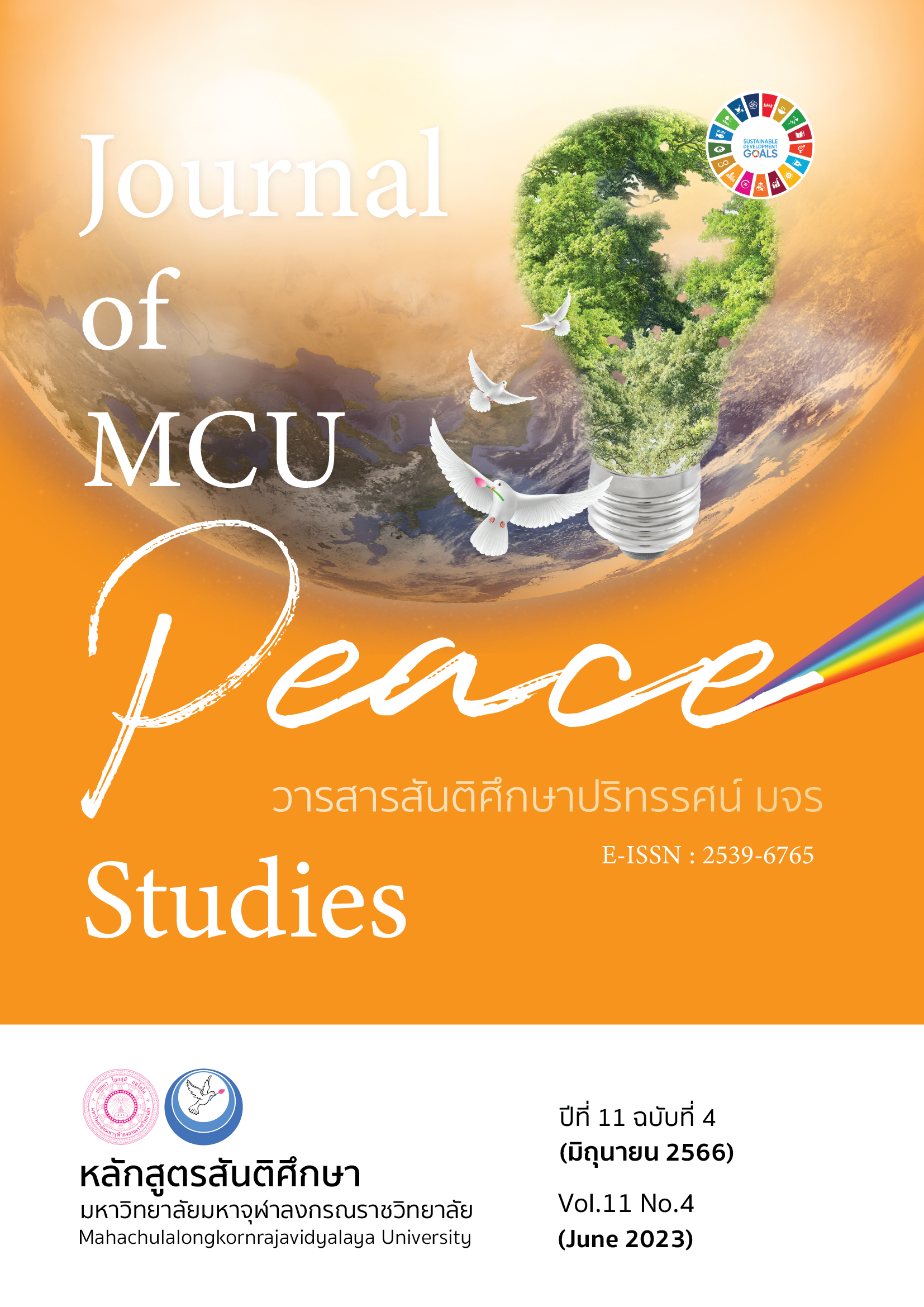คุณลักษณะความเป็นพลเมืองประชาธิปไตยที่ส่งผลต่อสมรรถนะการรู้เท่าทัน สื่อสารสนเทศ และดิจิทัลของนักศึกษานิเทศศาสตร์ มหาวิทยาลัยราชภัฏเขตภาคเหนือ
Main Article Content
บทคัดย่อ
บทความวิจัยนี้ มีวัตถุประสงค์เพื่อศึกษาคุณลักษณะความเป็นพลเมืองประชาธิปไตยที่ส่งผลต่อสมรรถนะการรู้เท่าทันสื่อสารสนเทศและดิจิทัล 4 ด้าน คือ 1) การเข้าถึง 2) การวิเคราะห์ วิพากษ์ ประเมิน 3) การสร้างสรรค์เนื้อหาข้อมูลสารสนเทศ และ 4) การประยุกต์ใช้และสร้างการเปลี่ยนแปลงของนักศึกษานิเทศศาสตร์มหาวิทยาลัยราชภัฏในเขตภาคเหนือ กลุ่มตัวอย่าง คือ นักศึกษาหลักสูตรนิเทศศาสตร์ ชั้นปีที่ 1-4 ของมหาวิทยาลัยราชภัฏในเขตภาคเหนือ 8 แห่ง จำนวน 667 คน ใช้แบบสอบถามเป็นเครื่องมือในการเก็บข้อมูล และได้รับกลับคืนมาครบถ้วน สถิติที่ใช้ในการวิเคราะห์ข้อมูล ได้แก่ ความถี่ ร้อยละ ค่าเฉลี่ย ส่วนเบี่ยงเบนมาตรฐาน การวิเคราะห์สหสัมพันธ์ และการวิเคราะห์การถดถอยแบบพหุคูณ
ผลการวิจัยพบว่า คุณลักษณะความเป็นพลเมืองประชาธิปไตยจากทั้งหมด 8 ด้าน มี 5 ด้านประกอบด้วย 1) การคิดอย่างมีวิจารณญาณและมีเหตุผล 2) การเคารพกฎหมายและกติกา 3) การมีส่วนร่วมทางการเมือง 4) การเห็นความสำคัญของประโยชน์ส่วนรวม และ 5) การรักความเป็นธรรมและความเสมอภาค ส่งผลต่อสมรรถนะการรู้เท่าทันสื่อสารสนเทศและดิจิทัล ทั้ง 4 ด้าน โดยมีค่าสัมประสิทธิ์การพยากรณ์ปรับปรุง (Adjust R2) ระหว่างตัวแปรอิสระ 5 ด้านกับตัวแปรด้านการเข้าถึง เท่ากับ 58.6 ด้านการวิเคราะห์ วิพากษ์ ประเมิน เท่ากับ 56.2 ด้านการสร้างสรรค์เนื้อหาข้อมูลสารสนเทศ เท่ากับ 56.7 และด้านการประยุกต์ใช้และสร้างการเปลี่ยนแปลง เท่ากับ 56.1
Article Details

อนุญาตภายใต้เงื่อนไข Creative Commons Attribution-NonCommercial-NoDerivatives 4.0 International License.
ทัศนะและความคิดเห็นที่ปรากฏในบทความในวารสาร ถือเป็นความรับผิดชอบของผู้เขียนบทความนั้น และไม่ถือเป็นทัศนะและความรับผิดชอบของกองบรรณาธิการ ยินยอมว่าบทความเป็นลิขสิทธิ์ของวารสาร
เอกสารอ้างอิง
Aekakul, T. (1999). Research Methods in Behavioral and Social Sciences. Ubon Ratchathani: Faculty of Education, Ubon Ratchathani Rajabhat Institute.
Black, K. (2006). Business Statistics for Contemporary Decision Making. (4th ed.). Missouri: John Wiley & Sons.
Child and Youth Media Institute and Thai Civic Education Network. (2016). A Conceptual Framework for Curriculum Development on Media Information and Digital Literacy for Thai Democratic Citizenship. Meeting Document of the Framework and Curriculum Development on Media Information and Digital Literacy for Thai Democratic Citizenship at Mandarin Hotel on 22 June 2016. Bangkok Thailand: Technic Image Company Limited.
Electronic Transactions Development Agency. (2021). Announcement of the Survey Results of Internet Users in Thailand in 2021. Retrieved December 30, 2021, from https://www.etda.or.th/th/pr-news/ETDA-released-IUB-2021.aspx
Klangnarong, S. et al. (2021). Digital Citizenship and the New Normal Way of Dealing with the Dark Side Online. Retrieved December 30, 2021, from https://blog.cofact.org/digitalcitizen/
Kularb, P. (2020). The Promotion of Media, Information, and Digital Literacy for Children and Youth: Case Studies from South Korea, Singapore, and the United Kingdom. Journalism, 13(2), 130-165.
Panlert, C. et al. (2013). A Conceptual Framework for Thai Democratic Citizenship Education Curriculum. Bangkok: Friedrich-Ebert-Stiftung Thailand Office and Bureau of Academic Affairs and Educational Standards, Office of the Basic Education Commission, Ministry of Education.
Posri, R. (2008). Research Methodology in Business. [Teaching Material]. Uttaradit: Faculty of Education, Uttaradit Rajabhat University.
Silver, A. (2009). A European Approach to Media Literacy: Moving toward an Inclusive Knowledge Society. In Divina Frau-Meigs and Jordi Torrent (Eds.), Mapping Media Education Policies in the World: Visions Programmes, and Challenges (pp.11-13).
Suttisima, V. et al. (2019). Indicators of Media Information and Digital Literacy in Working Age for Democratic Citizen. The Journal of Social Communication Innovation, 7(1), 194-202.
Werakultawan, S. (2018). Digital Literacy Power in Digital Citizens. Bangkok: Children and Youth Development Foundation.
Wirunrapan, K. et al. (2019). The Development of Social Indicators and Policy Recommendations on the Promotion of Media, Information, and Digital Literacy (MIDL) to Protect Children and Youth: Final Report. Bangkok: The Thailand Science Research and Innovation (TSRI).


